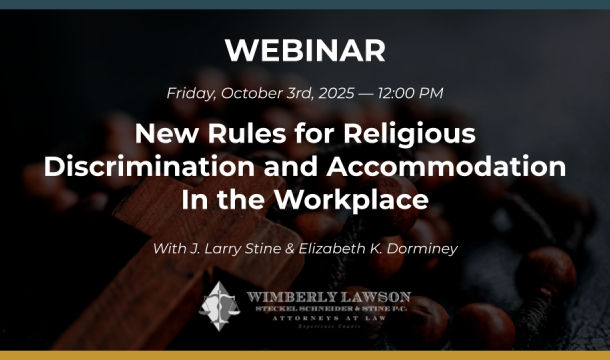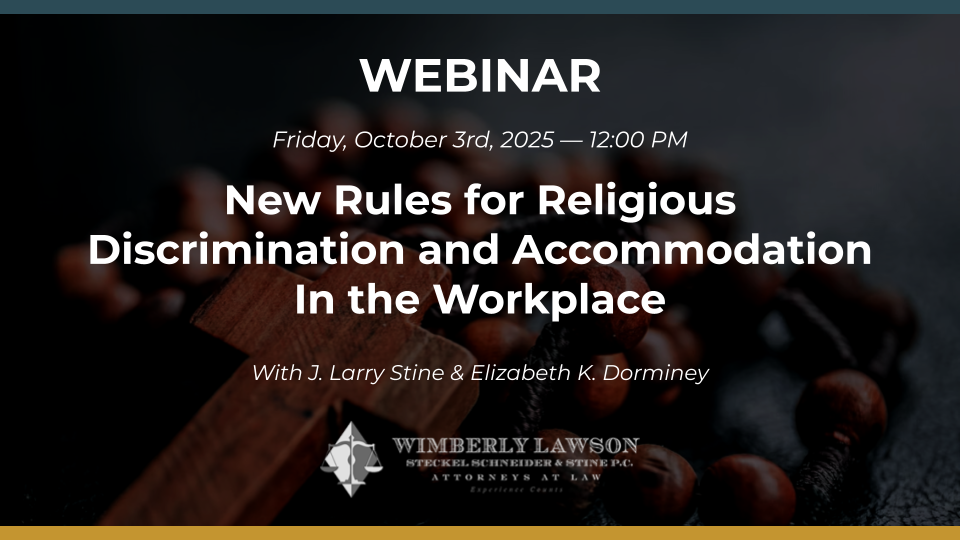Discrimination Based on Sexual Orientation and Discrimination Based on Gender Stereotypes--Is There a Difference? The 11th Circuit Says Yes, For Now.
Last week, the 11th Circuit Court of Appeals (which covers the states of Georgia, Florida, and Alabama) issued a decision regarding a claim of discrimination by a woman who worked as a security guard Georgia Regional Hospital. (Evans v. Ga. Reg'l Hosp., 11th Cir., No. 15-15234, 3/10/17). The plaintiff, Tameka Evans, alleged that she was discriminated against on the basis of her sex and targeted for termination because of her sexual orientation. The Hospital moved to dismiss the Complaint on the ground that discrimination on the basis of sexual orientation is not actionable under Title VII. The majority of the three judge panel of the 11th Circuit agreed, and made a distinction between discrimination based on sexual orientation and discrimination based on gender stereotyping. This distinction is critical because a 1989 U.S. Supreme Court decision held that discrimination based on gender stereotypes is a form of sex discrimination. In that case, the discrimination took the form of company managers telling a female financial professional that she did not act or dress feminine enough. In contrast, Title VII does not explicitly protect sexual orientation, and the majority opined that it is for Congress, not the courts, to amend Title VII to add any additional protected categories.
The dissent, however, argued strongly that any lesbian worker who alleges an employer discriminated because of her sexual orientation essentially is claiming the employer discriminated because she's attracted to women and therefore doesn't conform to gender stereotype
It should be noted that Ms. Evans brought the initial Complaint herself without an attorney. The Complaint was not very artfully drafted, and the court has given her an opportunity to amend it. Further, she has since had counsel appointed to represent her, and many observers believe that this case will be reviewed by the full 11th Circuit.
Ultimately, the issue of whether discrimination based on sexual orientation is actionable under Title VII may be decided by the US Supreme Court. We will continue to monitor this case.

Kathleen J. Jennings is a former principal in the Atlanta office of Wimberly, Lawson, Steckel, Schneider, & Stine, P.C. She defends employers in employment matters, such as sexual harassment, discrimination, Wage and Hour, OSHA, restrictive covenants, and other employment litigation and provides training and counseling to employers in employment matters.
Related Content
Get Email Updates
Recent Content

Trump Nominates Appointments to NLRB and EEOC but Policy Changes Likely to Be Delayed

DOL Launches Self-Audit Programs Designed to Help Employers Improve Compliance

DOL Must Release EEO-1 Reports to the Public under Open Records Laws

Current Advice on Active-Shooter Situations

New Policy for Federal Workers and Religious Expressions

